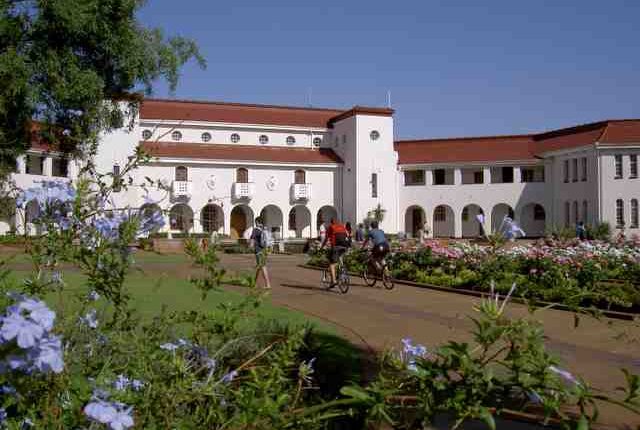North-West University: NWU ecotoxicology researchers represent Africa on a global scale
A group of 15 researchers from the North-West University’s (NWU’s) Unit for Environmental Sciences and Management recently presented their work at the 32nd Annual Meeting of the Society of Environmental Toxicology and Chemistry (SETAC) Europe conference in Copenhagen, Denmark.
The theme for the meeting was “Towards a reduced pollution society”.
According to one of the NWU researchers, Dr Hannes Erasmus, a variety of topics were discussed, ranging from laboratory-based studies to field studies in terrestrial, fresh water and marine ecosystems.
“These topics are, among others, the effects of platinum on aquatic ecosystems; ecological consequences of altered water quality; cytotoxic effects of biopesticides; effects of pesticides in soil ecosystems; and monitoring COVID-19 in wastewater,” he explains.
“From these discussions and the feedback received, it became evident that the NWU is an important role player in ecotoxicological research on an African and global scale, and that our outputs are of world-class standard,” Dr Erasmus adds.
He says that several postgraduate students also participated in this international conference.
“We support and encourage postgraduate students in the Unit for Environmental Sciences and Management to actively participate, since this is an ideal opportunity to network and establish collaborations at an international level.”
More about SETAC
The society of Environmental Toxicology and Chemistry (SETAC) is a not-for profit, global professional society established in 1979. It provides a forum for individuals and institutions engaged in education, research and development, ecological risk assessment and life-cycle assessment, and chemical manufacture and distribution. It is also a forum for those who are involved in the management and regulation of natural resources and the study, analysis, and solution of environmental problems.
SETAC is an open and democratic organisation that operates in a broad social context, reflecting the needs of the environment and people. Application of sound science plays a key role in this process. Membership worldwide comprises about 5 300 professionals in the field of chemistry, toxicology, biology, and ecology: atmospheric, health, and earth sciences; and environmental engineering.
Researchers from the NWU’s Unit for Environmental Sciences and Management recently attended the 32nd Annual Meeting of the Society of Environmental Toxicology and Chemistry Europe conference in Copenhagen, Denmark. From left are Dr Oladayo Idris, Dr Wynand Malherbe, Artimisia Monjane-Mabule (PhD candidate), Prof. Nico Smit, Ilzé Horak (PhD candidate), Dr Suranie Horn, Annika Kruger (MSc student), Monique Labuschagne (MSc student), Dr Anja Erasmus, Prof Rialet Pieters, Marelize Labuschagne (PhD candidate), Dr Hannes Erasmus, Prof Mark Maboeta, Ryan Uren (PhD candidate), and Prof Victor Wepener.

